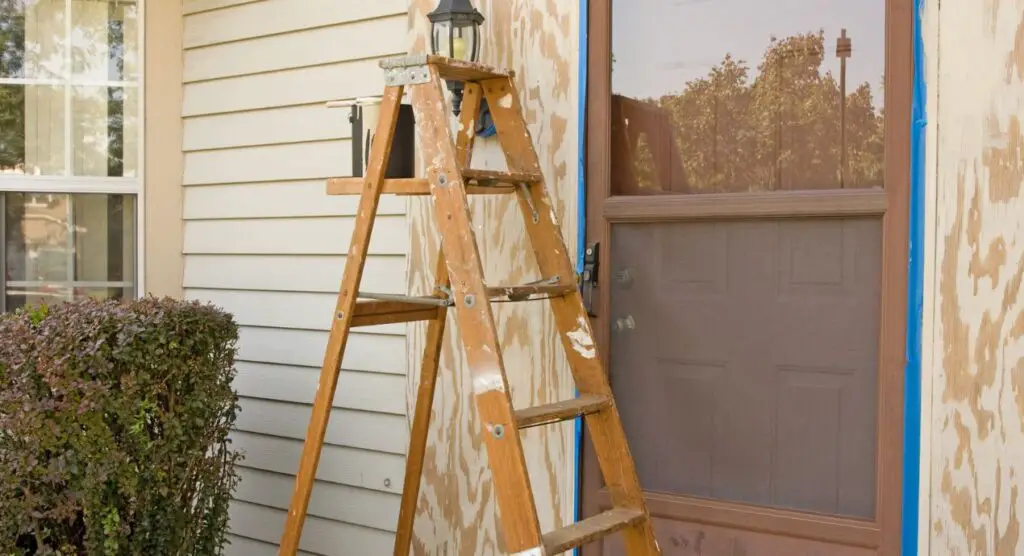My friends, gather ’round and lend me your ears, for I come bearing invaluable knowledge that will save you both precious time and hard-earned money. In the realm of home repairs, where uncertainty often lurks and expenses seem to multiply like rabbits, I stand before you today to reveal the holy grail of frugality – 10 Money-Saving Tips for Home Repairs. Consider this your treasure map, guiding you on a path towards affordable yet effective solutions to transform your humble abode.
Within these following paragraphs lie a wellspring of wisdom, crafted exclusively for you, the discerning homeowner seeking to conquer the realm of frugal living. Through careful research and personal experience, I have handpicked ten powerful tips that will unlock the secrets to minimizing costs while optimizing results. From minor fixes to more daunting endeavors, this article serves as your trusty guide, equipping you with the knowledge to navigate the labyrinthine world of home repairs without breaking the bank.
So, my dear readers, ready yourselves for a journey that promises not only to save you a pretty penny but also to empower you with the confidence to conquer any household challenge that comes your way. Together, we shall unveil the transformative magic of frugality and embrace a lifestyle that embraces both thriftiness and resilience. Let us begin this extraordinary odyssey and embrace the glorious art of money-saving home repairs.
10 Money-Saving Tips for Home Repairs
As a homeowner, I understand the importance of maintaining and repairing my home. However, hiring professional contractors for every little repair can quickly become expensive. That’s why I’ve discovered these money-saving tips for home repairs that have helped me stay within my budget while still keeping my home in top shape.

Choose DIY Repairs
Assess your abilities
Before tackling any DIY repair project, it’s important to assess your abilities honestly. While many repairs can be done by beginners with the right research and tools, other projects may require expert knowledge. Take some time to evaluate your skills and comfort level with various repairs to determine what you can confidently handle.
Start with small projects
If you’re new to DIY repairs, it’s best to start with small projects that are relatively simple and low-risk. This will allow you to gain confidence and improve your skills over time. Fixing leaky faucets, replacing light fixtures, or patching small holes in the wall are great beginner projects that can save you money in the long run.
Invest in quality tools and equipment
To effectively tackle DIY repairs, it’s important to invest in quality tools and equipment. While it may be tempting to opt for cheaper options, inexpensive tools often don’t last as long or perform as well. Quality tools will not only make your repairs easier and more efficient but also save you money in the long run by lasting longer.
Plan Ahead
Regular maintenance
One of the best ways to save money on home repairs is through regular maintenance. By taking proactive measures to prevent damage and address issues early on, you can avoid costly repairs down the road. Schedule regular inspections and maintenance tasks, such as cleaning gutters, checking for leaks, and servicing HVAC systems, to keep your home in good condition.
Create a repair budget
Setting aside funds specifically for home repairs is a smart financial move. Create a repair budget that allows you to save money each month for any unexpected repairs that may arise. By consistently saving for repairs, you’ll be better prepared to handle any unforeseen expenses without breaking the bank or resorting to loans or credit cards.
Research and compare prices
When it comes time to tackle a home repair, take the time to research and compare prices for materials and services. Check multiple stores and online retailers to find the best prices for the materials you need. Additionally, get multiple quotes from contractors to ensure you’re getting a fair price for the work. Don’t be afraid to negotiate and ask for discounts to further save money.
Reuse and Recycle
Repurpose materials
Instead of automatically throwing away materials from previous projects, consider repurposing them for future repairs. Old wood, bricks, or tiles can often be reused to patch or create new structures. Get creative and think outside the box – you’ll not only save money but also contribute to a more sustainable lifestyle.
Use leftover paint
If you have leftover paint from previous painting projects, don’t let it go to waste. Store it properly and use it for touch-ups or to freshen up small areas in your home. This way, you won’t have to spend money on new paint for minor repairs.
Donate or sell unwanted items
When decluttering or renovating your home, don’t just throw away unwanted items. Consider donating them to local charities or selling them online. Furniture, appliances, or fixtures that you no longer need can find a new home and someone willing to pay for them. This not only helps others but also allows you to recoup some of the costs from your home repairs.
Negotiate with Contractors
Get multiple quotes
When hiring professional contractors for larger repairs, always get multiple quotes. By comparing prices and services, you can ensure you’re getting the best value for your money. Don’t rush into accepting the first offer – take the time to gather different quotes and consider the reputation and experience of each contractor.
Ask for discounts
Don’t be afraid to ask for discounts when negotiating with contractors. Many contractors are open to negotiation, especially if they know you’re actively seeking other quotes. Be polite yet assertive when discussing prices and inquire about any available discounts or promotions that could lower the overall cost of the repair.
Consider off-season repairs
Another way to save money on contractor services is by scheduling repairs during the off-season. Contractors are often less busy during certain times of the year, and they may be more willing to offer discounted rates or negotiate prices. By planning your repairs ahead of time and scheduling them strategically, you can make significant savings on labor costs.

Pay Attention to Energy Efficiency
Use energy-saving appliances and fixtures
Consider upgrading to energy-saving appliances and fixtures in your home. While they may come with a higher upfront cost, energy-efficient options can significantly reduce your utility bills in the long run. Look for appliances and fixtures with a high energy star rating to ensure optimal efficiency.
Proper insulation and sealing
Proper insulation and sealing are essential for reducing energy waste in your home. Insulate your walls, attic, and floors to prevent heat transfer and keep your home comfortable year-round. Additionally, seal any gaps or cracks around windows and doors to eliminate drafts and improve energy efficiency.
Install programmable thermostats
Installing programmable thermostats allows you to optimize your heating and cooling settings based on your schedule. Set the thermostat to lower temperatures when you’re away or asleep and increase it when you’re home. This way, you’ll save money by not heating or cooling the house unnecessarily, and you’ll have better control over your energy usage.
Comparison Shop for Materials
Visit multiple stores
To get the best deals on materials for your home repairs, don’t limit yourself to a single store. Visit multiple stores both online and in-person to compare prices and quality. Take note of any sales or special offers and consider the reputation and customer reviews of each store before making a purchase.
Look for sales and discounts
Keep an eye out for sales and discounts on materials that you need for your repairs. Many stores offer seasonal sales or promotions, and these can save you a significant amount of money. Sign up for newsletters or follow the social media accounts of your favorite stores to stay updated on any upcoming sales events.
Consider alternative materials
Sometimes, alternative materials can be just as effective and more cost-efficient than traditional options. Do your research and consider alternative materials when planning your repairs. For example, laminate flooring can be a cheaper alternative to hardwood, and vinyl siding can mimic the appearance of more expensive materials while being easy to maintain.

Do Regular Inspections
Identify early signs of problems
Regular inspections of your home can help you identify early signs of potential problems. Look for cracks in the walls or foundation, water stains, or leaks. By catching these issues early on, you can address them before they cause further damage and become more expensive to repair.
Perform routine checks
In addition to inspections, perform routine checks on various systems and components in your home. Test smoke detectors, replace air filters, and check for any loose or damaged wiring. These small maintenance tasks can prevent larger issues from arising and save you money on repairs in the future.
Address issues promptly
When you do identify a problem during your inspections, make sure to address it promptly. Don’t delay repairs, as small issues can quickly escalate and become more costly. By taking immediate action, you can prevent further damage and expenses in the long run.
Consider Rental or Borrowing
Rent specialized tools
For certain repairs that require specialized tools or equipment, consider renting instead of purchasing. Renting tools for a short period of time can be much more cost-effective than buying them outright, especially if you’re unlikely to use them frequently. Check with local rental companies to see what options are available.
Borrow equipment from friends or neighbors
If you have friends or neighbors who have the tools or equipment you need for a particular repair, don’t hesitate to ask if you can borrow them. Many people are willing to lend a helping hand and share resources. Just be sure to return the tools in good condition and express your gratitude with a small token of appreciation.
Join a tool library or borrowing service
Tool libraries or borrowing services are community-based initiatives that allow you to borrow tools and equipment for a specific period of time. These organizations often have a wide range of tools available for members to use, saving you money on purchasing expensive equipment. Research if there are any tool libraries or borrowing services in your area and consider becoming a member.

Learn Basic Repair Skills
Educate yourself through online tutorials
The internet is a vast resource for learning new skills, and home repair is no exception. Take advantage of online tutorials, guides, and videos to educate yourself on basic repair skills. Websites such as YouTube and DIY-focused blogs offer step-by-step instructions that can help you tackle a variety of repairs around your home.
Take local workshops or classes
If you prefer a more hands-on approach, look for local workshops or classes that teach basic repair skills. Many community centers, hardware stores, or vocational schools offer classes on various home repair topics. By attending these workshops, you’ll gain practical experience and knowledge that can save you money on future repairs.
Join a community repair group
Joining a community repair group can provide you with a supportive network of individuals who are passionate about DIY repairs. These groups often organize repair events or share tips and tricks for cost-effective repairs. By participating in these communities, you’ll have access to valuable advice and resources that can help you save money on home repairs.
Don’t Delay Repairs
Prevent further damage and expenses
While it may be tempting to postpone repairs to save money in the short term, delaying necessary repairs can lead to more damage and higher expenses in the long run. Small issues can quickly escalate and cause extensive damage to your home. By promptly addressing problems, you can prevent further damage and preserve the value of your property.
Fix issues early on
As soon as you notice a problem, whether it’s a leaky faucet or a cracked tile, take action to fix it. Early intervention can often prevent issues from worsening and becoming more costly to repair. By promptly addressing repairs, you’ll save money by avoiding more significant damage and the need for extensive renovations.
Prioritize urgent repairs
When it comes to home repairs, it’s important to prioritize urgent repairs over cosmetic or non-essential projects. While it may be tempting to focus on aesthetic updates, addressing urgent repairs ensures the safety and functionality of your home. By dealing with pressing issues first, you can prevent them from becoming major headaches and financial burdens.
By choosing DIY repairs, planning ahead, reusing and recycling materials, negotiating with contractors, paying attention to energy efficiency, comparison shopping for materials, conducting regular inspections, considering rentals or borrowing, learning basic repair skills, and not delaying repairs, you can save a significant amount of money on home repairs. These money-saving tips will allow you to maintain and improve your home without breaking the bank. So, roll up your sleeves and start tackling those repairs – your wallet will thank you!


